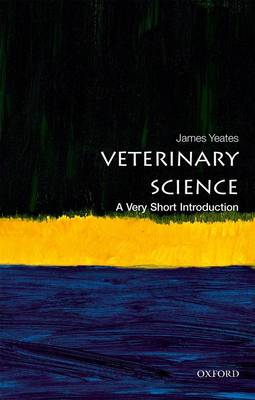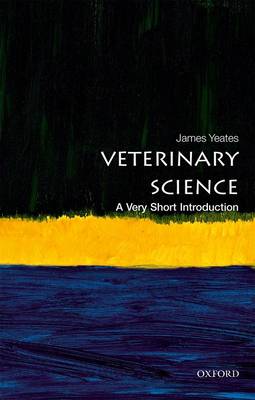
Door een staking bij bpost kan je online bestelling op dit moment iets langer onderweg zijn dan voorzien. Dringend iets nodig? Onze winkels ontvangen jou met open armen!
- Afhalen na 1 uur in een winkel met voorraad
- Gratis thuislevering in België vanaf € 30
- Ruim aanbod met 7 miljoen producten
Door een staking bij bpost kan je online bestelling op dit moment iets langer onderweg zijn dan voorzien. Dringend iets nodig? Onze winkels ontvangen jou met open armen!
- Afhalen na 1 uur in een winkel met voorraad
- Gratis thuislevering in België vanaf € 30
- Ruim aanbod met 7 miljoen producten
Zoeken
Omschrijving
Every year billions of animals, from housecats to racehorses to pythons, are treated by veterinarians. The use of veterinary science to treat the health of animals has a long history; for the past five centuries it has developed as our understanding of animals' fundamental biology, pathology, and pharmacology has grown. Rapid global changes expected in the twenty-first century will require the profession to respond proactively, embracing new challenges and opportunities. James Yeates, Chief Veterinary Officer of the RSPCA, introduces the field of veterinary science, covering the history of its scientific and clinical aspects from early practices to recent challenges such as the outbreak of BSE and antibiotic resistance, and considering the differences between human medicine and veterinary medicine. Analyzing the key roles played by diagnosis, treatment, and prevention with regard to the health of farm animals and pets, he relates this to wider aspects concerning public health, such as zoonoses (diseases that jump from animals to humans). Yeates also covers recent "One Health" approaches involving the health of both humans and animals, seen as synergistic, and discusses the challenges for the future of veterinary medicine, including the ethical dilemmas in balancing the interests of owners and animals when they do not coincide. ABOUT THE SERIES: The Very Short Introductions series from Oxford University Press contains hundreds of titles in almost every subject area. These pocket-sized books are the perfect way to get ahead in a new subject quickly. Our expert authors combine facts, analysis, perspective, new ideas, and enthusiasm to make interesting and challenging topics highly readable.
Specificaties
Betrokkenen
- Auteur(s):
- Uitgeverij:
Inhoud
- Aantal bladzijden:
- 160
- Taal:
- Engels
- Reeks:
Eigenschappen
- Productcode (EAN):
- 9780198790969
- Verschijningsdatum:
- 22/04/2018
- Uitvoering:
- Paperback
- Formaat:
- Trade paperback (VS)
- Afmetingen:
- 114 mm x 178 mm
- Gewicht:
- 136 g

Alleen bij Standaard Boekhandel
+ 27 punten op je klantenkaart van Standaard Boekhandel
Beoordelingen
We publiceren alleen reviews die voldoen aan de voorwaarden voor reviews. Bekijk onze voorwaarden voor reviews.











